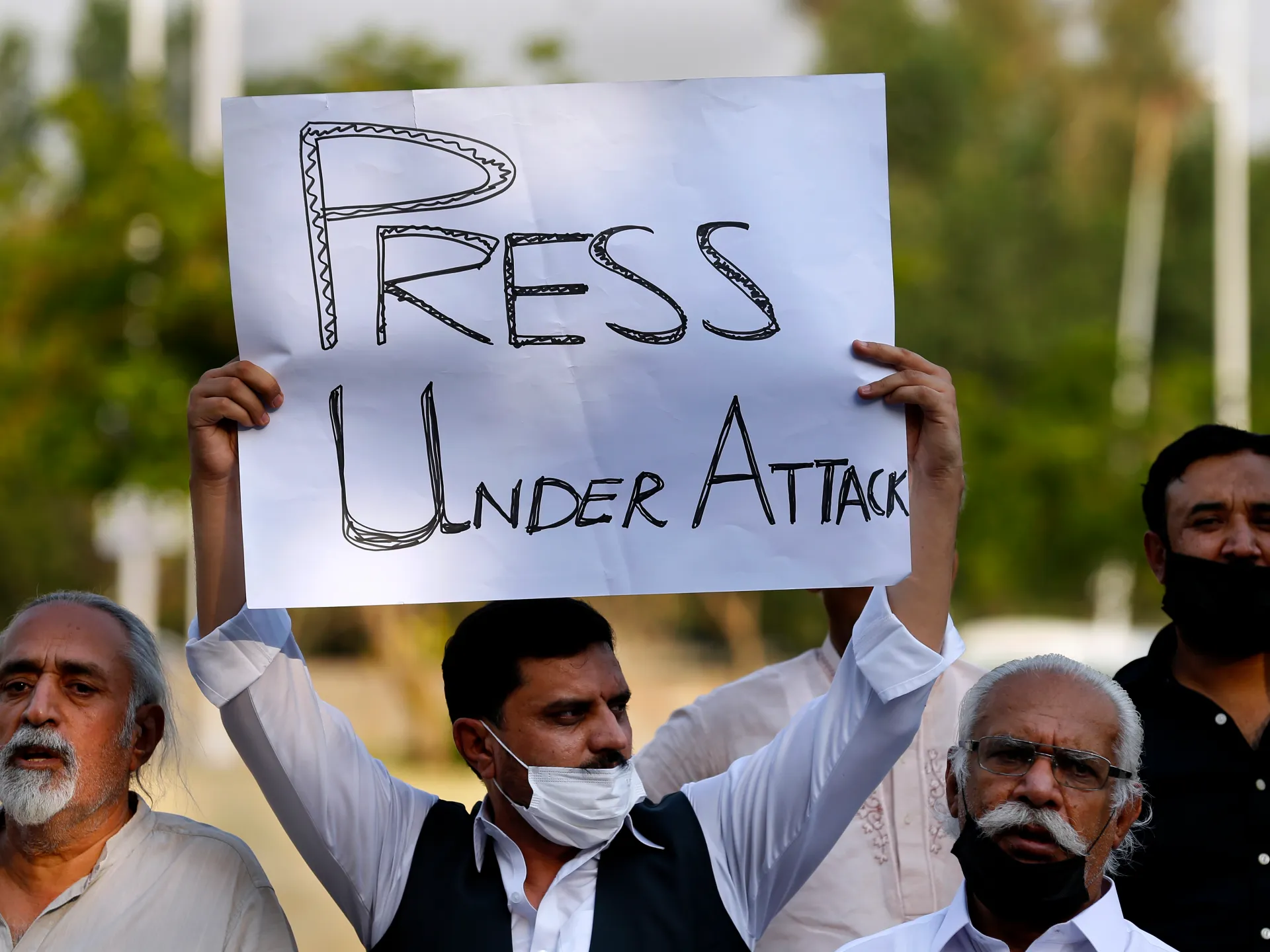Year’s fifth journalist killing in Pakistan reminds the chilling reality of its media freedom

Nasrullah Gadani, 40, who was a journalist with Sindhi language daily Awami Awaz, was riding a motorcycle when armed men fired at him in broad daylight in Mirpur Mathelo on May 21. He was rushed to hospital and later airlifted to Karachi for treatment. But he breathed his last three days later.
His death brings the total number of mediapersons killed across Pakistan in 2024 to five.
Pakistan voted for a new government in 2024 but that does not mean the nation has become a safe place for journalists or free speech advocates.
The murder of Nasrullah Gadani is a grim reminder of the state of free speech and media freedom in the country which is struggling financially and failing to check the alarming rise in street crimes as well.
Gadani’s death left the nation shocked and sparked outrage.
Thousands attended the funeral of the journalist in his native village with people demanding punishment for those involved in his murder.
While journalists across Pakistan protested, in Karachi, reporters covering the Sindh Assembly session, on Friday staged a token walkout of the press gallery of the assembly and demanded arrest of the killers of Gadani and Jan Mohammed Mahar, who was shot dead in Sukkur recently, reported Dawn.
Nasrullah Gadani’s death is not an isolated incident in Pakistan since four other media workers have been killed in the country this year.
Reporters Without Borders ranked Pakistan as the 152nd country in the world out of 180, marking the nation as one of the most dangerous places for journalists.
Since the end of the broadcast monopoly in 2002, Pakistan now has 100 TV channels and over 200 radio stations that provide information to the masses.
The country also caters to its large Urdu-speaking and minority English-educated population with a large number of newspapers and magazines.
Highlighting the precarious state of media in the country, RSF said: “Pakistan is one of the most dangerous countries in the world for journalists, with three to four murders each year that are often linked to cases of corruption or illegal trafficking and which go completely unpunished.”
“Any journalist who crosses the red lines dictated by Inter-Services Public Relations (ISPR) – the military’s media wing – is at risk of being the target of in-depth surveillance that can lead to abduction and detention for varying lengths of time in the state’s prisons or less official jails. Furthermore, Inter-Services Intelligence (ISI), Pakistan’s leading military intelligence agency, is prepared to silence any critic once and for all,” it said.
In its Editorial titled ‘Enduring threat’, published in Dawn News, the leading Pakistani daily highlighted the challenges faced by the journalists in the country and the nonchalant attitude of the government towards them.
“The government’s inaction perpetuates a cycle of bloodshed and impunity. To break this cycle, it must take decisive steps. This includes fully activating regional safety commissions with adequate resources, ensuring prompt and transparent investigations into attacks on journalists, and prosecuting those responsible,” read the Editorial.
” Capacity building for journalists, particularly in safety protocols, and fostering partnerships between journalists and lawyers for legal recourse are crucial,” the newspaper reported.
Dawn News further warned in its Editorial that until the measures are implemented Pakistani journalists will continue to work under the shadow of fear, and the state will remain complicit in the erosion of press freedom.
Reacting to the latest killing in Sindh, the Human Rights Commission of Pakistan, an independent rights watchdog, expressed its deep concern over the threat to journalists’ lives in Pakistan.
“HRCP is deeply concerned by the situation facing journalists in the country, with at least three journalists reportedly target-killed this year alone,” it said in a statement.
“Awami Awaz journalist Nasrullah Gadani, who died of his injuries earlier today, was fired on by unknown gunmen in Ghotki on 21 May. The Sindh government must investigate his murder and hold the perpetrators to account by taking all necessary measures to implement the Sindh Protection of Journalists and Other Media Practitioners Act,” it said.
Meanwhile, the Committee to Protect Journalists, or CPJ, has pressed Pakistan to immediately reveal the whereabouts of Ahmad Farhad Shah, a freelance journalist and poet, reported Voice of America (VOA).
Several unknown men seized Shah from outside his home at night in the capital, Islamabad, and forced him into a vehicle over a week ago, said a copy of a petition his wife filed with the federal high court shortly after the incident, the VOA report said






